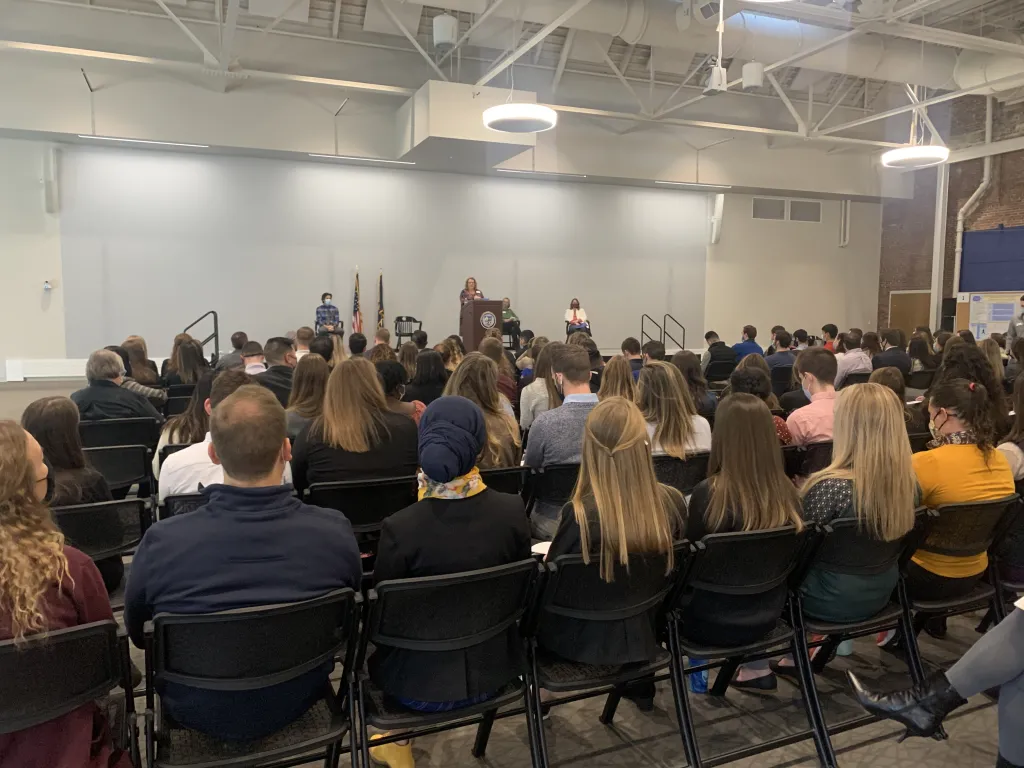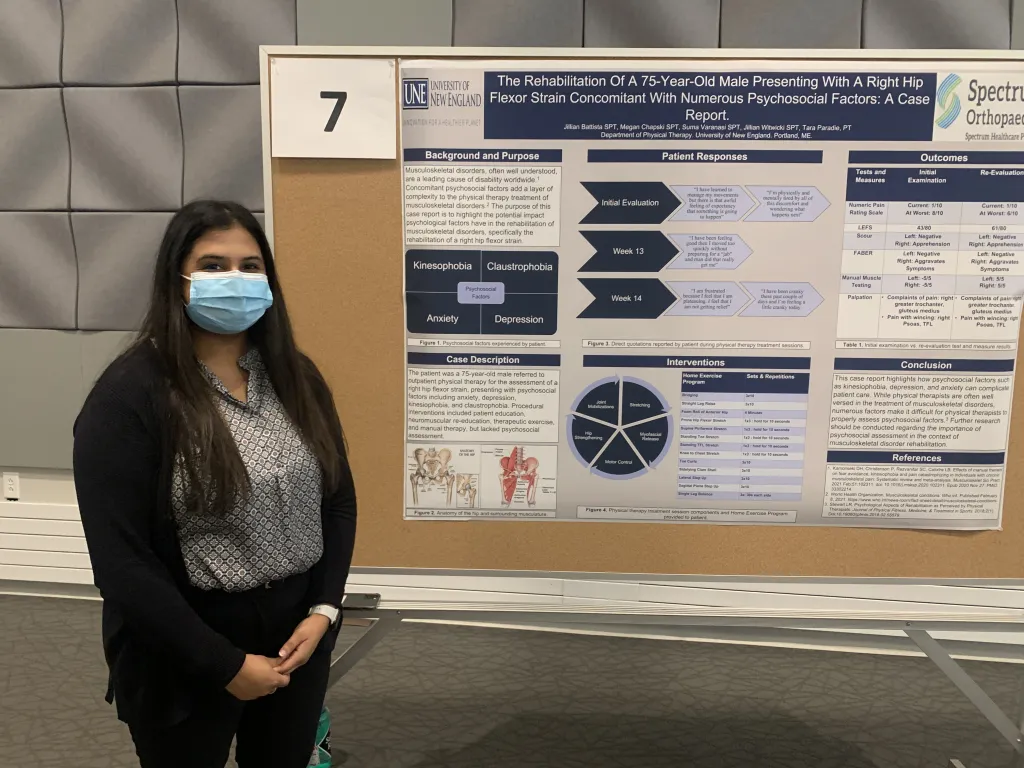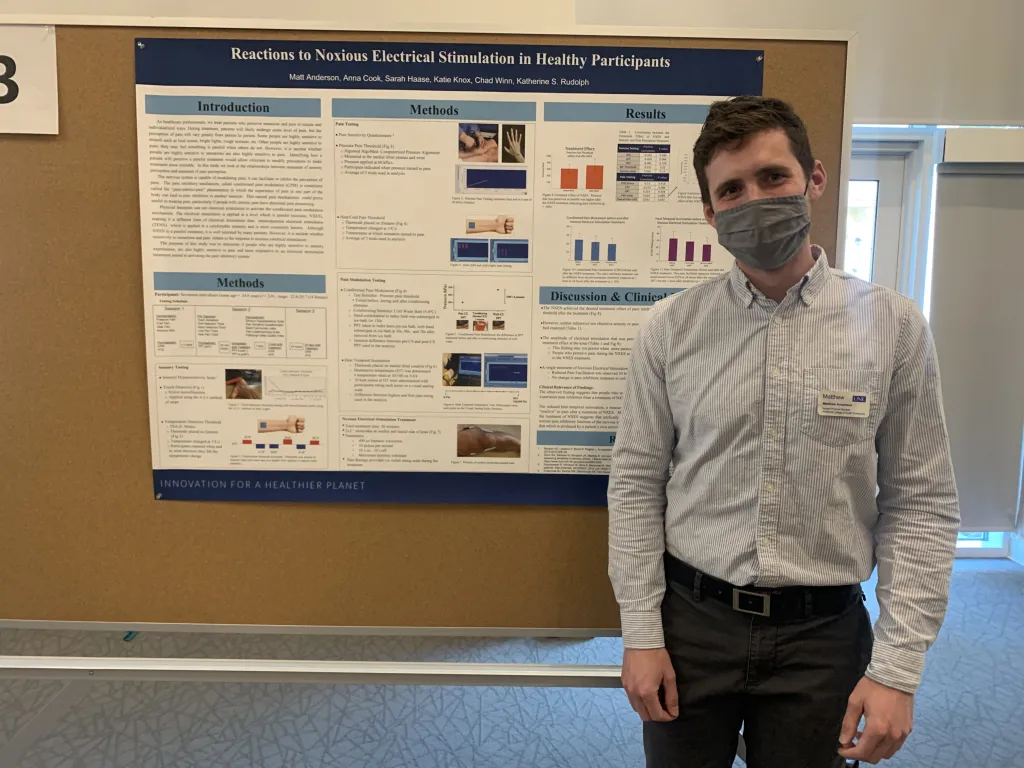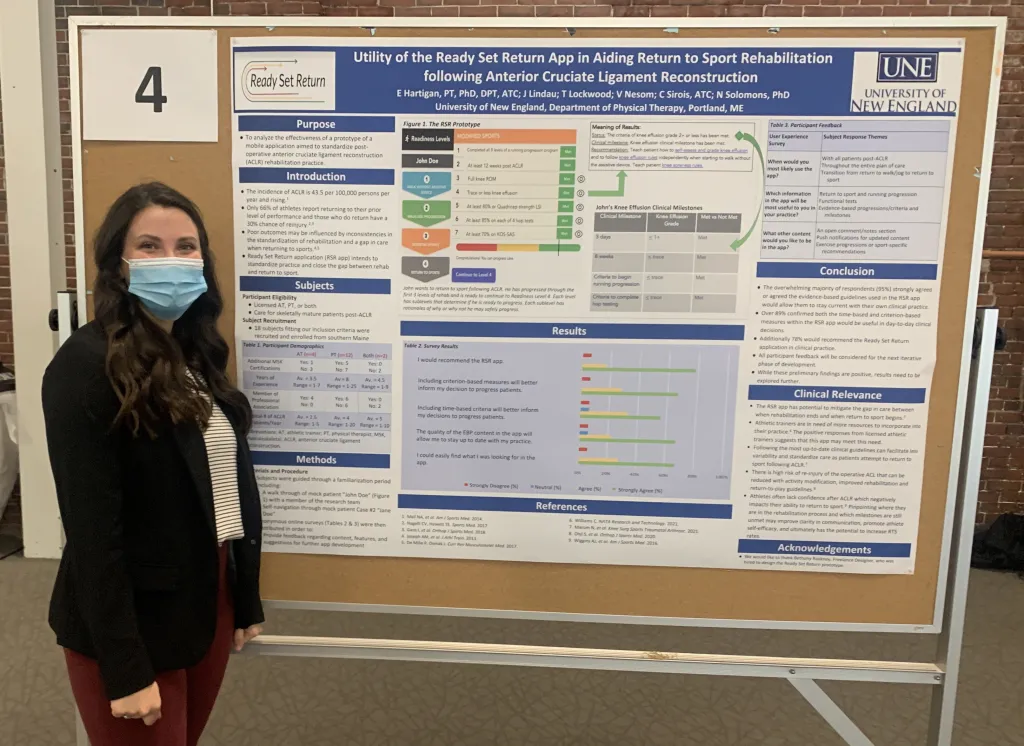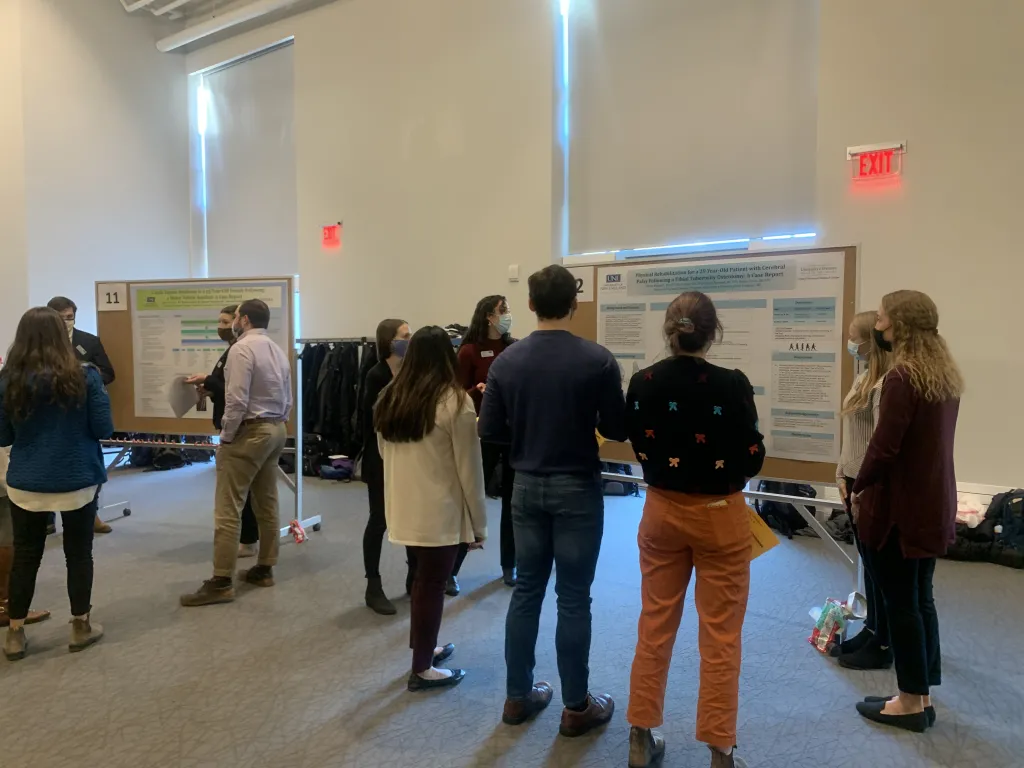Physical Therapy students present research at annual scholarship symposium
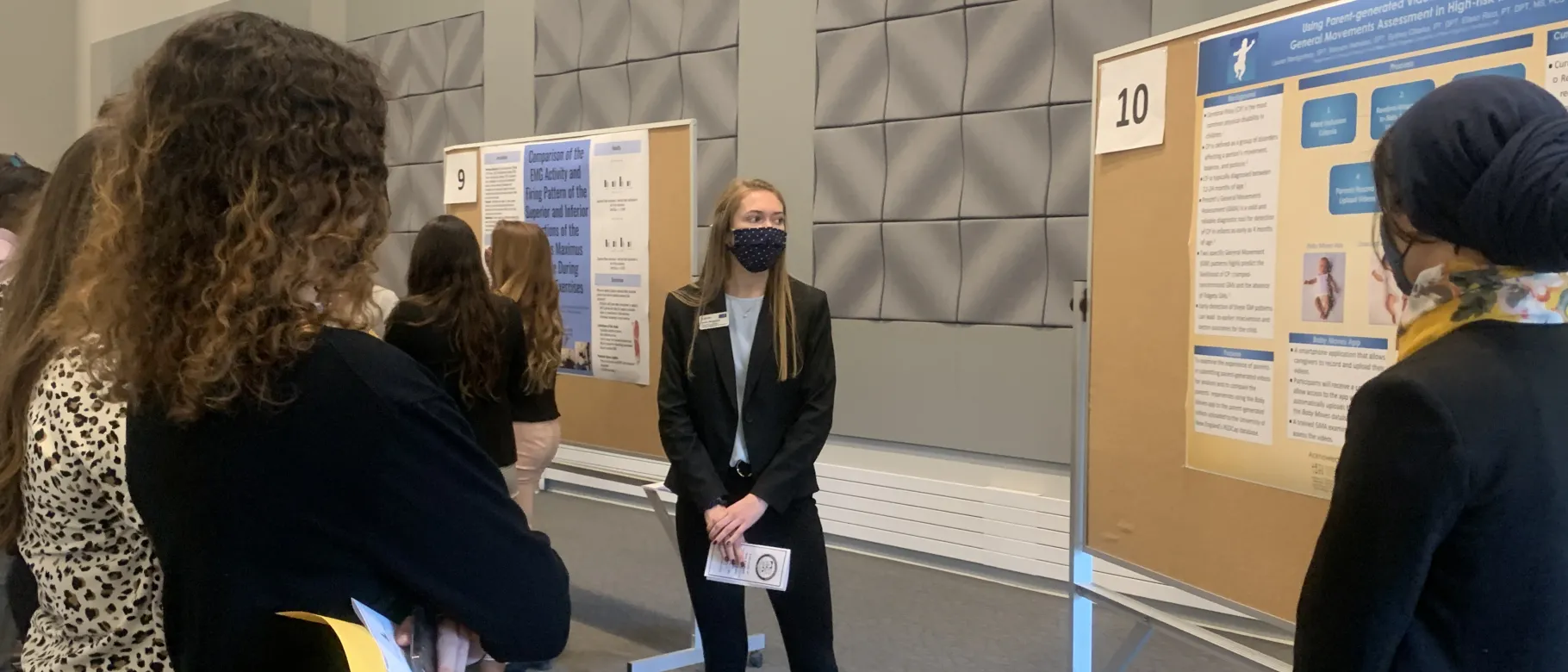
Dozens of students from the University of New England’s third-year Doctor of Physical Therapy (D.P.T.) program presented their research at the annual D.P.T. Scholarship Symposium on Friday, Dec. 3.
The event, held in Innovation Hall on the University’s Portland Campus, brought together the presenters — all members of the Class of 2022 — and first-year D.P.T. students, who attended to learn from their peers.
The program began with remarks from Jennifer Audette, PT, Ph.D., director of the D.P.T. program at UNE; Karen Houseknect, Ph.D., UNE’s associate provost of Research and Scholarship; Sally McCormack Tutt, PT, D.P.T., M.P.H., Ed.D., interim dean of UNE’s Westbrook College of Health Professions; and UNE alum James Townsend, PT, D.P.T. ’15, OCS. Virtual remarks were given by Robyn Watson Ellerbe, Ph.D., M.P.H., vice president of research at the American Physical Therapy Association (APTA), and Heidi Kosakowski, PT, D.P.T., Ph.D., senior practice specialist at APTA.
All of the event’s speakers underscored the importance of research to the PT profession.
“We need PTs to be asking and answering questions that will improve what we do for patients and for the health of society,” Audette remarked after the event. “It is so exciting to see all of the ways in which our students have engaged in meaningful scholarly projects. Hopefully, this has given them an appreciation for the scientific process, research, and inquiry that translates to scientific curiosity throughout their careers.”
Suma Varanasi, whose group investigated the case study of a 75-year-old male with a right hip flexor strain, concomitant with numerous psychosocial factors, said research is an important aspect of the physical therapy curriculum.
“Participating in this project has helped me become more aware of how to utilize research and data to help guide my clinical decision-making and use the most up-to-date evidence-based practice,” said the Plainsboro, New Jersey, native. “Utilizing these skills as a student is beneficial because, once I graduate and start practicing on my own, I will be able to implement the skills I acquired from UNE while treating patients.”
Maine native Cassidy Sirois — whose team helped prototype a mobile app called Ready Set Return, which assists health care professionals in their assessment of clients returning to sport post-ACL reconstruction — said her research experience has given her a broad set of skills that will aid her as she transitions from education to clinical practice.
“Conducting research has served as an opportunity to improve my time-management skills, my professional communication skills, and my ability to collaborate with others, which are all very important skills to fine tune before graduation,” she said. “It also gave me an opportunity to expand my network and connect with professionals in the field of physical therapy whom I wouldn't have met otherwise.”
For some students, the research experience was an opportunity to explore interprofessional fields. Matthew Anderson, of Lufkin, Texas, said a personal interest in neuroscience increased his understanding of his group’s research on pain neuroscience with regard to a common PT intervention called noxious electrical stimulation (NXES).
While his group was unable to find a direct correlation between people's sensitivity to certain sensory stimuli and their response to NES, Anderson said the experience has inspired him to pursue further professional opportunities, such as a residency program in neurologic physical therapy or even a doctorate in neuroscience.
“Getting this research exposure has been informative and has given me an excellent resume-building experience that will hopefully help me pursue these opportunities to further my education,” he said.
Lauren Montgomery also remarked that research and evidence-based practice is valuable across the health professions.
“Having the opportunity to work on a research study over the last few semesters has been valuable in understanding how much effort goes into collecting evidence,” she said. “I am grateful for this experience as it has given me a new appreciation for the time and dedication that researchers give to this process.”
